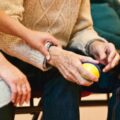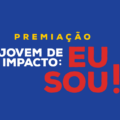
Workshop
A light in the network

Building a responsible digital citizenship: this is the goal of Faro Digital, an NGO founded in 2015 whose initiatives are primarily aimed at the younger generations.
The development of internet and the technologies that allow the expansion of the digital world are certainly instruments capable of transforming reality, widening personal knowledge, and creating networks of contact. Yet at the same time, it is important to be aware of the risks that derive from their use that can result in various forms of violence, to thus use them in a responsible and critical way. Precisely for this reason, Faro Digital was born, an NGO that studies the uses, the habits, and the relation of the citizens with digital technologies. Created in 2015 and active in Argentina and Spain, its mission is to educate through workshops, laboratories, and formation courses, to communicate through campaigns and contests, and to conduct field research for building positive digital citizenship.
Ezequiel Passeron, executive director of Faro Digital in Argentina, tells us about this, explaining that the idea at the base of the laboratories is to raise awareness towards the risks on the internet as well as the opportunities offered through its correct use. The NGO has a clear social mission: to bring the different generations closer by building bridges between the youth and the adults. For this, even though the main protagonists and the target audience of their activities are the children, adolescents, and youth, they consider fundamental the work of accompanying, growth, comprehension and help carried out by the adults.
The idea of working with this specific age group derives from the observation that today’s younger generations are the first to be born already immersed in the digital world and that therefore it is important to contextualize technology. As Ezequiel says, you cannot deny the importance of the internet in their lives, in their emotional relations, and in their aspirations, but there’s the need to analyze the processes and situations that are experienced in the digital sphere.
It is for this that even the problems are different according to the age and the use of the gadgets. “With the children of the elementary school, we discuss themes such as bullying and cyberbullying, their first experiences on social networks and the protection of privacy,” explains Passeron. “Instead with secondary school students, we work on topics such as grooming (sexual abuse on the internet), the circulation of intimate images without consent, the secure practice of sexting and lastly, the building of a digital identity,” he adds. From a study conducted with the students, Faro Digital has discovered that in most cases the youngsters associate digital violence with cyberbullying, but they do not see as a problem the circulation of images without consent or gender-based violence as digital violence, although that is their concern. Lastly, he explains that “with the families or generally adults they concentrate, starting from a basic level, on the introduction to technology of the smallest, providing guidelines for its use and monitoring access to inappropriate information.”
The digital world, or maybe more precisely, the social networks, have become a kind of nervous system of society. As there, their emotions explode without filters, and with what consequences? Passeron explains: “The social medias are often the mirror of what happens in our society. If we live in a society in which violent emotions prevail, it is predictable or logical that these are reflected in online communication and socialization spaces. To this, the particularity of these technologies sums up: being communicative processes mediated through screens, it is not rare that in the digital exchanges there is the absence of empathy towards the other, because you do not find yourself face to face and there is no awareness of the effect that a comment, post or message may cause in a friend, acquaintance or an interlocutor.”
According to the Faro Digital manager, then, the emotions surface on social media because these are used as peer communication tools. “It is for this that we have to work a lot on the formation of the new generations that takes into consideration the emotions of the youngsters even on the internet, with a humanistic and social approach,” he explains.
In this sense, the NGO takes forward, along with UNICEF and the province of Buenos Aires, the program “Digital Coexistence,” a proposal concentrated on the building of an identity and on relations and human emotions that aims to educate the new generations to the values, to reduce the generational and IT gap and to guarantee the respect of human rights.
But this is only one of the projects designed by Faro Digital. Together with big companies like Movistar, Telefé o Avón the NGO has launched research, communication, and formation initiatives. Among these is “Soy Digital” (“I am Digital”), designed in collaboration with Facebook and aimed to raise awareness among youth, social entrepreneurs, and/or professionals to the creative and productive use of the Internet.
Even the various laboratories offered by Faro Digital have a strong impact. “The laboratories on responsible use are the most requested by schools because of the strong demand from teachers, but also from families, who want to provide answers to the social issues that are reflected online today,” Passeron comments. And underlines: “We observe the need to analyze digital spheres in the absence of institutional spaces to do so. These debates are very well received by the youth, who thus have the opportunity to reflect, perhaps for the first time, on their own practices and their consequences. We cost great astonishment, misinformation, and fascination with the topic.”
Faro Digital aims on providing clarity on a universe that is opening to society, bringing about great richness as well as many delicate aspects. Thus, it is important to learn to use it, aware of its potential, its limits and the risks connected.
Ezequiel affirms: “We are convinced that not everything in life occurs on the internet and it is for this that we think it is necessary to offer information and council and co-create strategies that allow us to better operate in these digital environments. Considering them as an equal public and social space is the basis for beginning to build (digital) citizenship.”
To learn more about it visit: www.farodigital.org
Article published on the number 613 of the Ciudad Nueva review.
Source:






